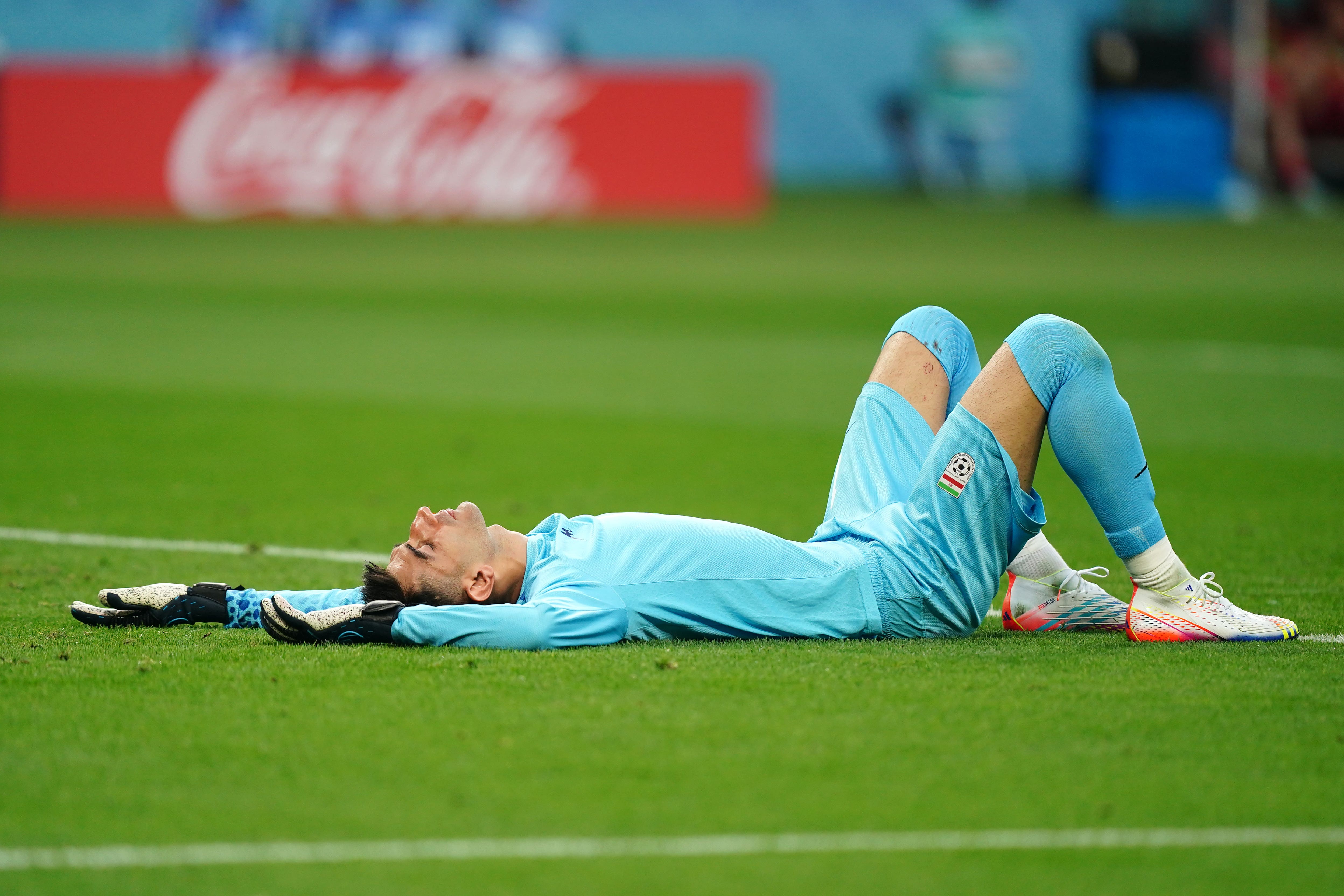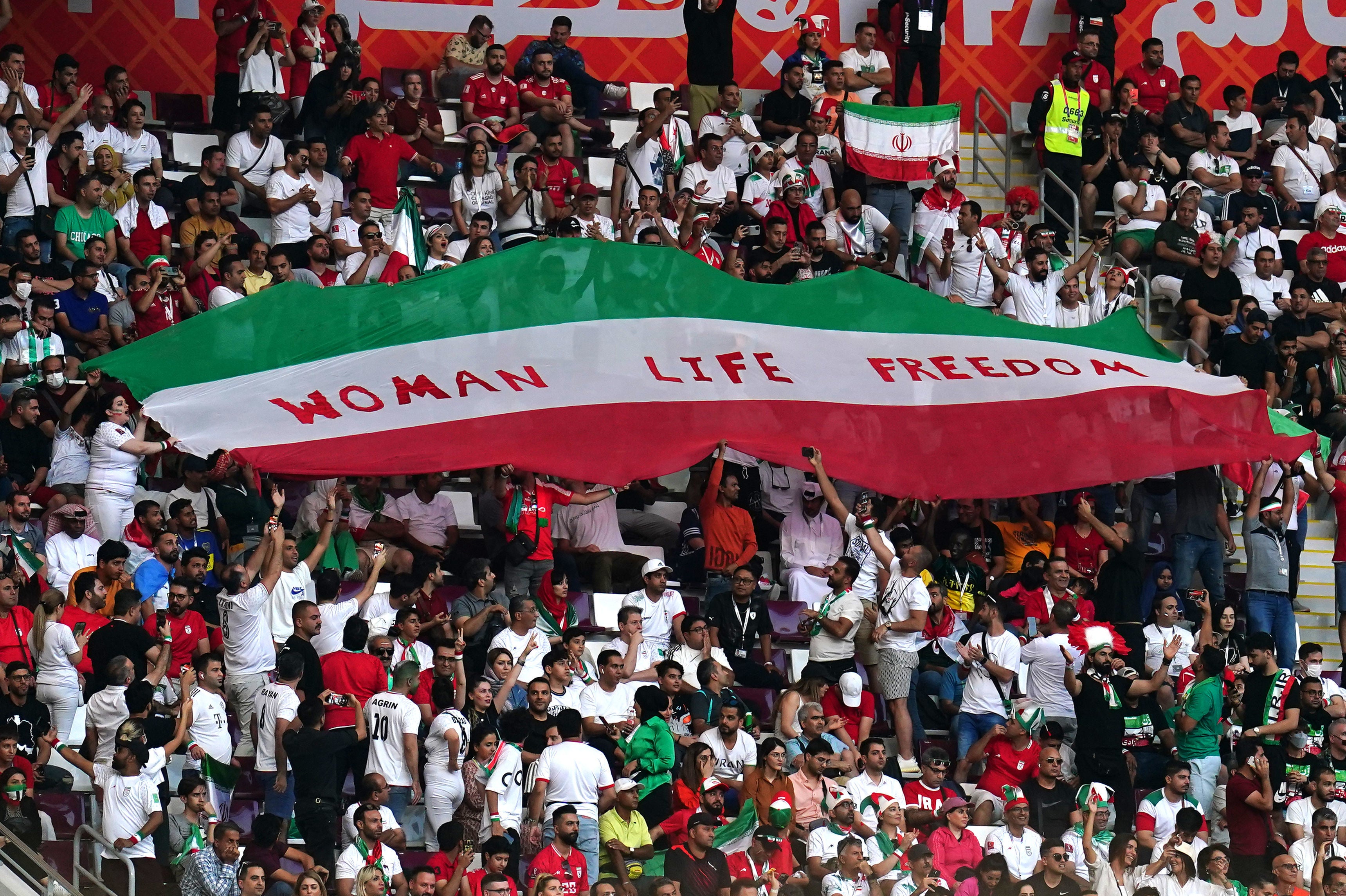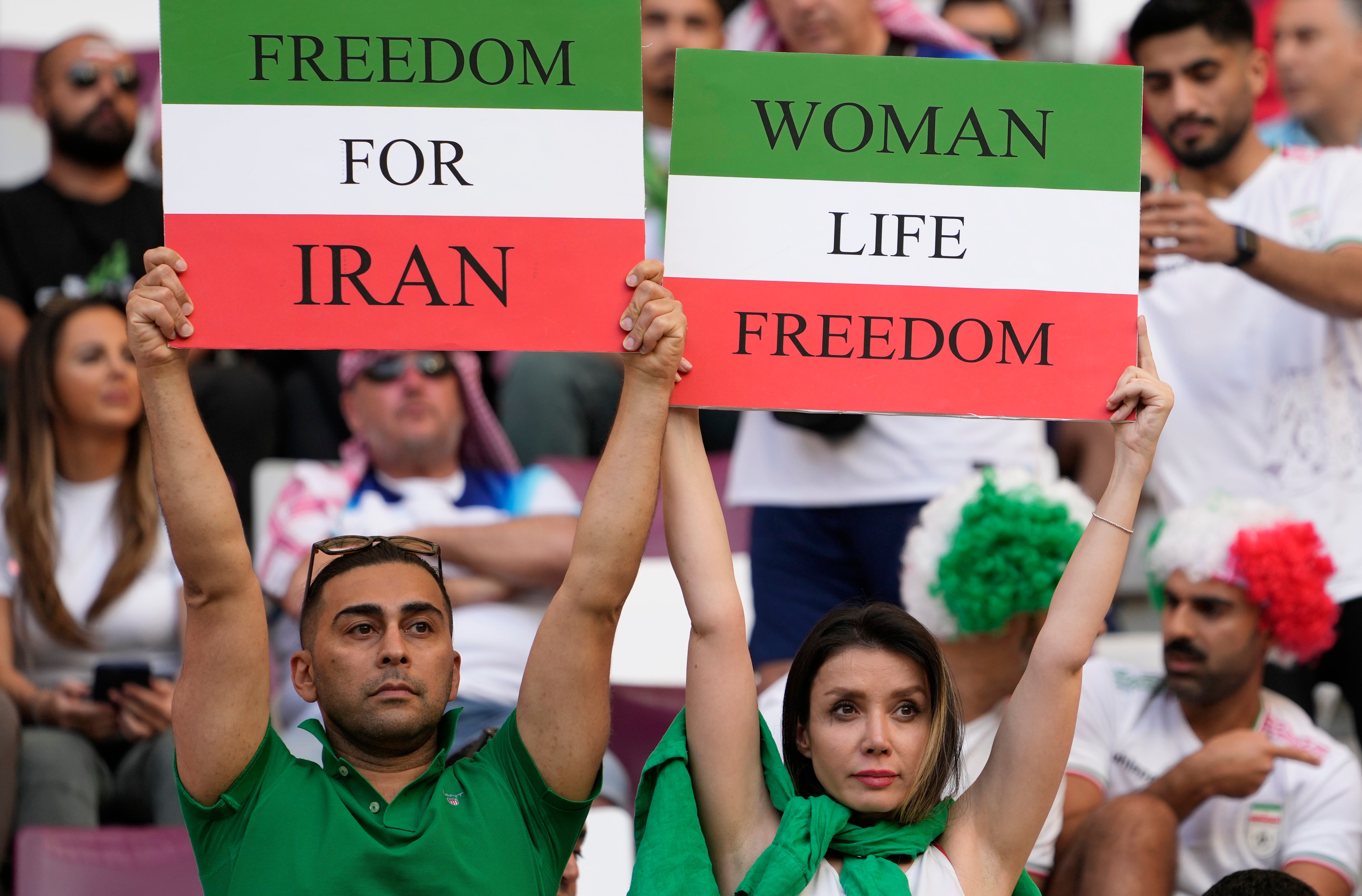What will happen to the Iran World Cup team now?
Even before the World Cup, male athletes had been joining in the protests. But now they’ve done so at the foremost global tournament, and Iranian fans say they are worried for ‘Team Melli’ and what they might face on their return. Ari Honarvar reports

Every member of the Iranian football team refused to sing the Islamic Republic’s national anthem before their World Cup match with England. This subtle yet impactful act of defiance has been attributed to their support of anti-government protests in their home country. Now they have been knocked out of the World Cup, what fate awaits them?
At a news conference prior to the match in Qatar, the team’s captain, Ehsan Hajsafi, expressed his solidarity with the protesters. "Before anything else, I would like to express my condolences to all of the bereaved families in Iran," he said. "They should know that we are with them, we support them and we sympathize with them." He later added that: “We have to accept the conditions in our country are not right and our people are not happy. We are here but it does not mean we should not be their voice or we should not respect them.”
Massive protests erupted across Iran in September following the arrest and the subsequent death of 22-year-old Mahsa (Jina) Amini. She was taken into custody by the so-called morality police for her alleged failure to comply with strict hijab laws. Thus far, no one has been charged with killing Amini. Instead, government crackdowns have reportedly killed more than 400 unarmed civilians, including more than 50 children, and have arrested more than 15,000 protesters.
The Islamic Republic parliament overwhelmingly voted for severe punishment of protesters, while referring to the arrested number as “mohareb” (the enemy of God). At least six defendants, all captured unarmed, have been sentenced to death. Others have been sentenced to ten years or more in prison. But even with these severe reprisals, the regime has been unable to contain protests, which continue to ebb and flow in all thirty-one provinces of Iran.
By refusing to sing the Islamic anthem, Team Melli — the nickname for the Iranian football team — appears to have joined other athletes who are facing off on the world stage against the Islamic Regime. In the past few months, several women athletes have shown their solidarity with protesters by removing their headscarves while competing for the country. The latest one, archer Parmida Ghasemi, removed her hijab during an awards ceremony in Tehran.
Even before the World Cup, male athletes had been joining in the protests. Footballer Saeed Piramoun made a gesture of cutting his hair after scoring a goal in the final of the Intercontinental Beach Soccer Cup at Cottage Beach in the United Arab Emirates. The “hair-cutting” gesture has become an international symbol of support for Iranian women and those who are demanding change.
After scoring a goal in a Futsal match, player Hashim Shir Ali paid tribute to the slain Baluchi activist Khodanour Lajaei by sitting with his arms extended as if they were locked around a pole. The original photo of the prisoner had reportedly been released by Iranian police to humiliate him. Instead, the photo became another inspiration for a gesture to emulate by those who have joined the popular revolt.
Given these athletes’ acts of solidarity with protesters, Team Melli drew intense criticism for even planning to compete in Qatar. Sentiments turned more bitter after photos showing them bowing in front of President Ebrahim Raisi at a send-off ceremony went viral.
While Iran played England, the crowd booed and jeered from the stands. Some wore T-shirts and signs displaying “Woman, Life, Freedom,” which has become the rallying cry of Iranian protesters.

Iran’s state-controlled media made very little mention of the team refraining from singing the national anthem or of Hajsafi’s remarks. They also continue to insist that protesters are rioters and these “riots” are orchestrated by the country’s enemies. In response to Team Melli’s silence during the anthem, Mehdi Chamran, Tehran’s city council chairman said: “We will never let anyone insult our anthem and flag. Iranian civilization is several thousand years old. This civilization is as old as the total of European and American civilizations.”
For some Iranians, the football team’s refusal to sing the anthem was “the least they could do.” Mohammad, a 22-year-old man in Baluchistan, told me that he felt the presence of Iran at the World Cup normalized a brutal dictatorship but, he added, “not singing the national anthem made the image of the Islamic Republic even more dishonorable than it already is in front of the international community.”

Others applauded the team for their courage. Sepideh, a 24-year-old woman in Kurdistan, expressed her concerns about the pressure the team may have received from the regime: “Not singing the national anthem is a big deal. It shows they were forced to play [in the World Cup]. By refusing to sing, they were saying they sympathize with the protesters.”
Meanwhile, there are continuing reports of massacres, especially in ethnic minority regions such as Kurdistan, Baluchistan, and Khuzestan. The reported killing of the youngest identified victim in Khuzestan, 10-year-old Kian Pirfalak, added more fuel to the fire. Kian’s mother first blamed the security forces for her son’s death but later retracted the comments in what appeared to be a forced TV interview. The boy’s father is still in the hospital with serious gunshot wounds.
In Kurdistan province, the birthplace of Mahsa Amini, the regime recently shelled the cities of Piranshahr, Marivan, and Javanroud. Unconfirmed footage of live gunfire and injured people has since surfaced from Javanroud. There are reports of several casualties, including of a 16-year-old named Karwan Ghader Shokri, in Piranshahr. Another man was said to have been killed when Islamic Republic forces fired on crowds as the teen’s body was taken to the mosque.
Besides using intimidation, arrests, and lethal force to silence the opposition, widespread internet blackouts have been imposed by the regime.
The international community has broadly shown support for the protesters and condemned the actions of the Iranian regime. French President Emmanuel Macron recently characterized the protests as a "revolution”. This week, the US imposed targeted sanctions against three Iranian officials in Kurdistan. On Thursday, the United Nations Human Rights Council will hold a special session to address “the deteriorating human rights situation in the Islamic Republic of Iran.”
Several athletes who defied the regime apologized on record for not wearing hijab, but these also seem to be forced retractions. Because of this, some Iranians have expressed concerned for the footballers and their families. In a land of reprisals, coerced confessions and apologies, the fate of Team Melli remains in the balance. What is certain is that their silence during the anthem brought even more attention to the plight of Iranians on the ground.
Bookmark popover
Removed from bookmarks